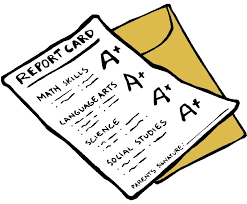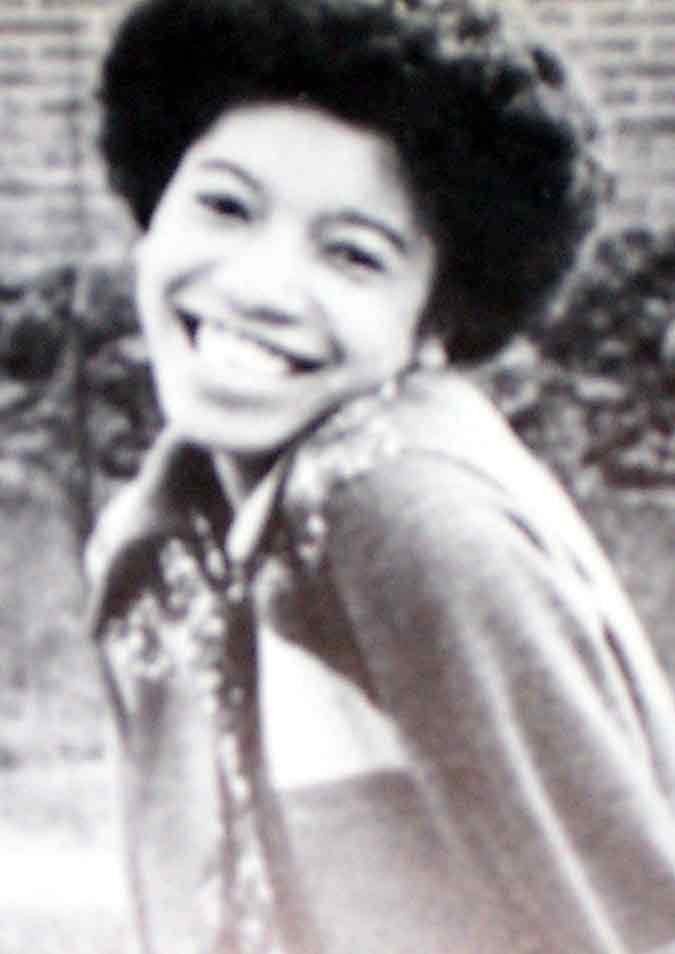A little while ago, I wrote about a little boy who thought money
came out of walls (a visual image of ATMs.) The sluggish economy provides an ideal time to teach kids how to be savvy about money, according to Eric Tyson, a financial author.
Here's a guest column on the topic of kids and money, featuring 9 financial lessons from Tyson.
"With inflation on the rise (gas prices, grocery bills, health insurance premiums, etc.) and many companies being more conservative, more American families are feeling squeezed. So if you're feeling guilty because you can't buy your child that video game system he desperately wants or send him to that trendy summer camp, Eric Tyson has one word for you. Don't. In fact, he says, now is the perfect time to teach your kids some valuable financial lessons.
"Kids are surprisingly aware of what's going on in the world," says Tyson, author of the new book
Let's Get Real About Money! Profit from the Habits of the Best Personal Finance Managers (FT Press, December 2007). "And if they don't know that times are a little bit tough and Mom & Dad are having to watch their spending, it's time to tell them. Sheltering kids from financial realities does them no favors."
Indeed, the opposite is true, says Tyson. A good grasp of personal finance is one of the most valuable life skills a person can have. And while previous generations may have been raised with the constant admonishment that "money doesn't grow on trees!," too many of today's parents neglect that lesson. It's time to change that—and the economic slowdown we're in now provides a great incentive for doing so.
"In many ways, a slower economy can be a blessing in disguise," admits Tyson. "It leads families to make a budget and stick to it. It forces them to be conscious about how they handle money. That's good for kids. It shows them how the world is supposed to work."
Tyson offers the following hints:
1.
Realize that kids learn what they live. It may sound like common sense, but we are our kids' most influential teachers. When you ring up a barge-load of credit card debt, take out exorbitant mortgages or car loans, and fail to save anything, that's what your kids come to see as normal. If you are modeling unhealthy financial habits, you can't realistically expect your kids to "do as I say, not as I do."
"Adults who live it up now and fail to save for the future can expect to raise children who are accomplished spenders and poor savers," notes Tyson. "Be honest with yourself about the powerful money messages you're sending your kids. If your financial habits are poor, overhaul them now. You owe it to your kids."
2.
De-program them. Kids are constantly bombarded with information about what things cost, whether it's the fancy sports car they like or the wardrobe of their favorite athlete or actor, not to mention the 40,000 commercials that the American Academy of Pediatrics estimates the average American child sees each year. What they aren't bombarded with is knowledge on how to manage money effectively. And while schools are increasingly incorporating money issues into the existing curriculum, the broader concepts of personal financial management still aren't taught. Frightening though it may be, some schools rely on free "educational" materials from the likes of VISA and MasterCard!
"These credit card titans provide materials that implicitly and explicitly support carrying consumer debt as a sound way to finance significant purchases and living expenses," says Tyson. "In fact, VISA and MasterCard school-supplied resources endorse spending upward of 15 to 20 percent of one's monthly take-home income to pay credit card and other consumer debts! Explain to your kids that such spending puts a lot of money directly into the credit card companies' pockets, so of course they're going to offer that advice...but that smart people don't listen to it."
3.
An allowance is a great teaching tool. You don't have to break child labor laws to find great ways to help your kids earn their allowance rather than just have it handed over to them. A well-implemented allowance program can mimic many money matters that adults face every day throughout their lives. From recognizing the need to earn the green stuff to learning how to responsibly and intelligently spend, save, and invest their allowance, children can gain a solid financial footing from a young age.
"A great time to start is when your kids reach the five-to-seven age range," says Tyson. "Start them on some household chores, and explain to them that they will be paid for their work. Of course, the size of the allowance should depend, in part, on what sorts of expenditures and savings you expect your child to engage in and, perhaps, the amount of 'work' you expect your child to perform around the house. I recommend paying $0.50 to $1.00 per year of age. So, for example, a six-year-old child would earn between $3 and $6 per week."
4.
Start them saving and investing early. It's never too early to start saving, and the sooner you can instill the importance of saving money into your kids the better. After they start earning an allowance, have your kids save a significant portion (up to half) of their allowance money toward longer-term goals, such as college (just be careful about putting money in children's names as doing so can harm college financial aid awards). Tyson recommends that children reserve about one-third of their weekly take for savings. As they accumulate more significant savings over time, you can introduce the concept of investing.
"Rather than trekking down to the boring old local bank and putting the money into a sleepy, low-interest bank account, I prefer having kids invest in mutual funds," says Tyson. "Another option is for kids to buy individual stocks. Kids can learn more about how the financial markets work and understand stocks better by sometimes picking individual stocks rather than using funds. Just be careful to keep transaction fees to a minimum and teach your kids how to evaluate a stock and its valuation and not simply buy companies that they've heard of or that make products they like. The money they are able to save and invest will be a huge help to them later on in life."
5.
Reduce their exposure to ads. The primary path to reduced exposure to ads is to cut down on TV time. When kids are in front of the tube, have them watch prerecorded material. You can direct the television viewing of younger children, in particular, toward videos and DVDs. And for older kids, if you use digital video recorders (DVRs), such as TIVO, you can easily zap ads. But when an ad does sneak under the radar and set the kids to begging, address it. Explain to your kids that there's never a good time for frivolous impulse spending—but it's especially harmful when money is tight.
"Invest the necessary time to teach and explain to your kids that the point of advertising is to motivate consumers to buy the product by making it sound more wonderful or necessary than it really is," says Tyson. "Also explain that advertising is costly and that the most heavily promoted and popular products include the cost of all that advertising, so they're paying for it when they buy those items."
6.
Find entertaining ways to teach good money habits. You'll probably be facing an uphill battle when trying to get your kids to sit down and learn about personal finance. That's why it's so important to find entertaining ways to instill good financial habits in them. For younger kids Tyson recommends age-appropriate books like The Berenstain Bears Get the Gimmies. For late-elementary-school-aged kids, Quest for the Pillars of Wealth by J.J. Pritchard is a chapter book that teaches the major personal finance concepts through an engaging adventure story. You could also get them a subscription to Zillions, a kids' magazine from the publishers of Consumer Reports, which covers money and buying topics.
"Another great opportunity to teach your kids about personal finance and get to spend quality time with them in the process is through board games," suggests Tyson. "Monopoly and Life are two games that are very effective at getting your kids to think about the best way to manage money and plan whether they should spend or save."
7.
Teach them how to shop wisely. Family shopping trips, whether for groceries or something else, are likely to be your kids' first encounter with spending. They'll see you make decisions based on what the family needs, maybe see the occasional coupon used, and will observe how you pay. These trips are a great time to teach them lessons about money.
"Explain that being a smart consumer requires doing your homework, especially when buying more costly products," says Tyson. "Teach your kids the value of product research and comparison shopping. Demonstrate how to identify overpriced and shoddy merchandise. Finally, show them how to voice a complaint when returning defective products and go to bat for better treatment in service environments, two additional tasks that are part of being a savvy consumer."
8.
Introduce the right and wrong ways to use credit and debit cards. Those plastic cards in your wallet offer a convenient way to conduct purchases in stores, by phone, and over the Internet. Unfortunately, credit cards offer temptation for overspending and carrying debt from month to month. Teach your kids the difference between a credit and debit card, explaining that debit cards are connected to your checking account and thus prevent you from overspending as you can on a credit card.
"Explain to them that credit cards should be used sparingly and then practice what you preach," says Tyson. "Wean yourself off of using your credit card, and tell your kids why you've decided to do so."
9.
Encourage older kids to get a job. An allowance doesn't have to be the only way for your kids to earn money. Your child's initial exposure to the work-for-pay world can start with something as simple as a lemonade stand. Depending on age, he or she might do yard work for neighbors or offer babysitting services. And the fact that we're in a recession makes it all the more appropriate for older kids to "help out" by getting a part-time job—especially to fund unnecessary purchases like DVDs or cool clothing.
"I had an extensive newspaper route for a number of years, and I cut lawns and did other yard work during high school and college summers," says Tyson. "By holding down such jobs, kids can learn about working, earning, saving, and investing money. It also provides welcome relief for parents to not continually be the source of spending money. Working outside the home does raise some safety issues, so by all means be involved in ensuring that your child has a safe work environment."
Besides the learning opportunities it presents, there's another positive to the economic downturn, says Tyson. It forces families to be more thoughtful about how they spend their time—and this often leads to the stunning realization that money really doesn't buy happiness.
"Often, the pricey toys we buy for ourselves and our kids and the lavish vacations we take are simply distractions from the people we love," he says. "They send the message that it's necessary to spend a lot of money in order to have a good time. It's not, of course. The best things in life—friends, family, quiet evenings at home just being together—really are free. Sometimes it's good to be reminded of that."
--Eric Tyson
______________
Digg!__
















